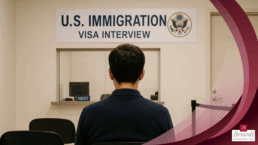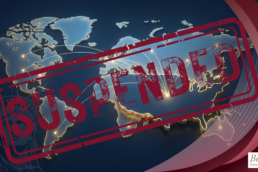If you’re eyeing the U.S. job market through the lens of an H‑1B visa, you’ve probably heard the buzz: the Trump administration is eyeing a major overhaul of the H‑1B visa allocation process.
What’s Actually Changing About H-1B Visas?
On August 8, 2025, the White House’s Office of Information and Regulatory Affairs (OIRA) gave a nod to a proposed rule shift away from the traditional lottery system toward a wage-based selection model for H‑1B visas.
The punchline? The higher the salary offered, the better your odds of being granted a permit. This turns the once-randomized chance into what critics are calling a “luxury work permit.”
Why That Matters, Especially for Graduates and Smaller Employers
This update isn’t just administrative jargon, it has consequences:
- New grads and early-career folks (often paid less) could find themselves systematically edged out before ever getting considered.
- Small and mid-size businesses, particularly those hiring for niche or public service roles (i.e. rural bilingual teachers, educators in STEM, etc.) could struggle to compete with tech giants offering massive salaries.
“This proposed H-1B change hasn’t taken effect yet, it’s still in the pre-publication stage and will go through public comment. But if a wage-based system is finalized, it could dramatically reshape who has access to the program. This rule doesn’t just reward high salaries, it sidelines the very employers and communities that rely most on global talent — universities, start-ups, healthcare systems, and smaller cities where wages are naturally lower. The real disadvantage falls on entry-level professionals and the regions of the U.S. that cannot compete with Silicon Valley or East Coast salaries, even though their need for talent is just as great.”
— Jennifer Behm, Partner, Berardi Immigration Law
What’s at Stake?
There’s more than just economic harm on the table:
- Innovation risks: Startups and niche industries may lose out if they can’t pull in early-career international talent.
- Equity concerns: If wealth becomes the ticket to a work permit, we risk reinforcing privilege and leaving deserving candidates out in the cold.
- Wider ripple effects: Schools, rural districts, and lower-budget nonprofits that traditionally hire via H‑1B could see programming gaps widen.
What’s Next? Brace for Public Comment and Legal Pushback
Once this proposed rule drops in the Federal Register, the public comment window opens. It’s your chance to weigh in, and rest assured, legal challenges are already being floated
Long-Term Outlook: Reform or Roadblock?
- For employers: Higher salary demands could raise costs but could potentially also incentivize more formalized wage structures.
- For foreign professionals: Expect a fiercer entry barrier, especially for early-career applicants.
- For the U.S. workforce: On one hand, fewer H-1B applicants might mean reduced competition. But at what cost to innovation and economic vitality?
The H-1B Visa Program Is at a Turning Point
The shift from lottery to wage-based selection is a big deal, and could potentially be a game-changer for hopeful American immigrant workers. It may reward big-budget employers and established professionals…but it could also shut the door on emerging talent, underfunded organizations, and highly competitive newcomers.
If you’re navigating this, and feeling uncertain, you’re not alone. Whether you’re an employer eyeing skilled recruits or a professional charting your U.S. career path, it’s time to strategize.
H-1B Proposed Rule FAQs
- Will the wage-based system completely replace the H-1B lottery?
Not yet. The rule is still in the proposal stage. It must be formally published in the Federal Register and go through a public comment period before it can be finalized. Legal challenges are also expected, which could delay or block implementation. For now, the lottery is still the law of the land. - How can I improve my chances of getting an H-1B under these proposed rules?
If the wage-based model is adopted, higher salaries will likely be favored. That means applicants working in industries or with employers who can offer competitive wages may have an advantage. However, strategy matters. There may be other pathways (such as TN, L-1, or O-1 visas) that could be a better fit depending on your situation. A consultation with an experienced immigration attorney can help you understand all your options.
Need Clarity? We’ve Got Your Back.
At Berardi Immigration Law, we don’t sugar-coat. We break things down clearly, what’s proposed, what’s real, and what it could mean for you.
If you want to:
- Understand how this rule might affect your eligibility or hiring strategy,
- Prepare smartly for public comment or future changes,
- Or just figure out your next move under evolving immigration rules
Schedule a consultation with us. No fluff. No fear. Just knowledgeable, tailored guidance to help you plan ahead.
Ready to have Berardi on your side?
Whether you’re a business looking to hire or a professional hoping to relocate, immigration law can be complicated. But you don’t have to do it alone. Put our experience to work for you.



